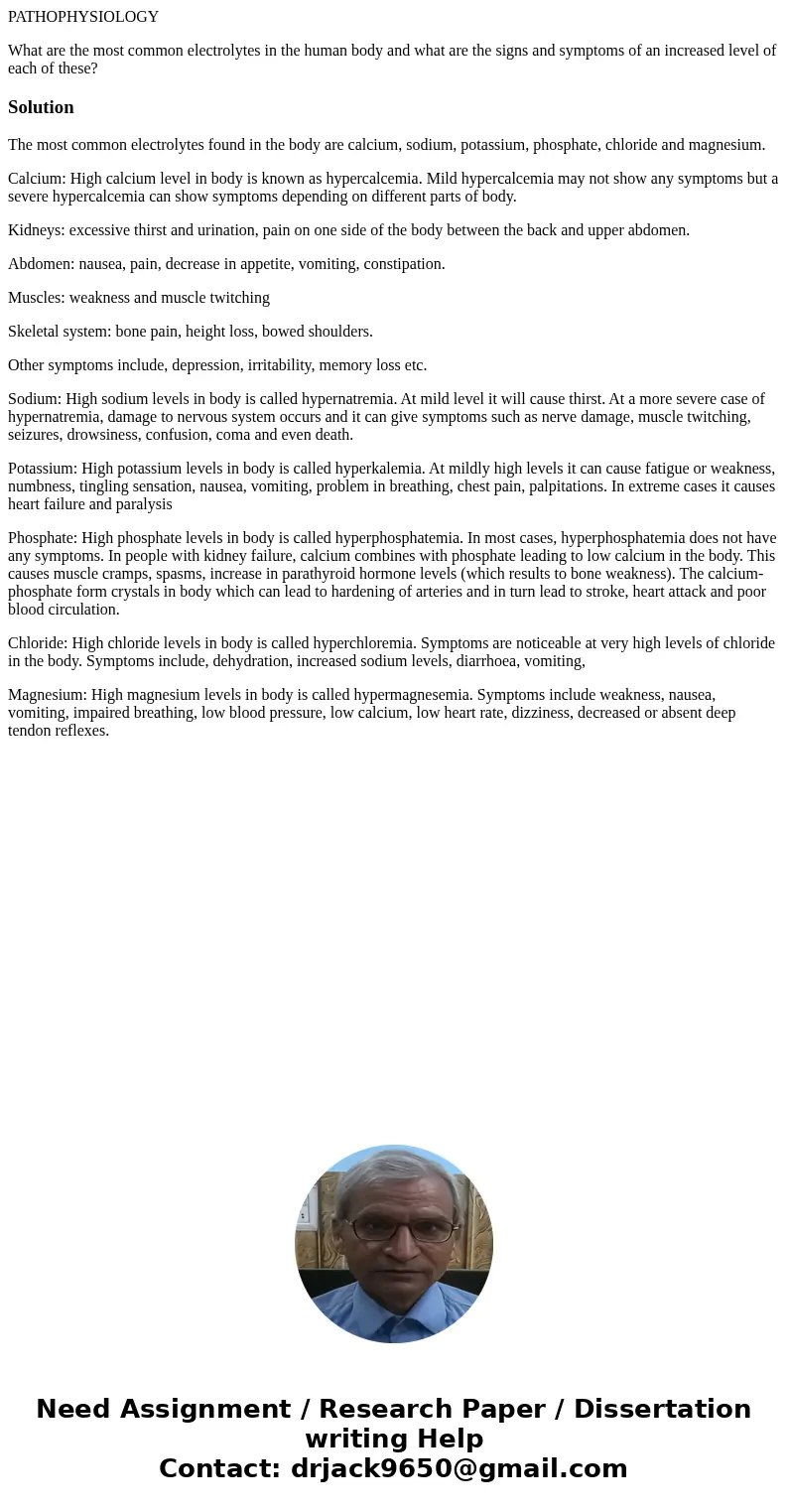PATHOPHYSIOLOGY What are the most common electrolytes in the
PATHOPHYSIOLOGY
What are the most common electrolytes in the human body and what are the signs and symptoms of an increased level of each of these?
Solution
The most common electrolytes found in the body are calcium, sodium, potassium, phosphate, chloride and magnesium.
Calcium: High calcium level in body is known as hypercalcemia. Mild hypercalcemia may not show any symptoms but a severe hypercalcemia can show symptoms depending on different parts of body.
Kidneys: excessive thirst and urination, pain on one side of the body between the back and upper abdomen.
Abdomen: nausea, pain, decrease in appetite, vomiting, constipation.
Muscles: weakness and muscle twitching
Skeletal system: bone pain, height loss, bowed shoulders.
Other symptoms include, depression, irritability, memory loss etc.
Sodium: High sodium levels in body is called hypernatremia. At mild level it will cause thirst. At a more severe case of hypernatremia, damage to nervous system occurs and it can give symptoms such as nerve damage, muscle twitching, seizures, drowsiness, confusion, coma and even death.
Potassium: High potassium levels in body is called hyperkalemia. At mildly high levels it can cause fatigue or weakness, numbness, tingling sensation, nausea, vomiting, problem in breathing, chest pain, palpitations. In extreme cases it causes heart failure and paralysis
Phosphate: High phosphate levels in body is called hyperphosphatemia. In most cases, hyperphosphatemia does not have any symptoms. In people with kidney failure, calcium combines with phosphate leading to low calcium in the body. This causes muscle cramps, spasms, increase in parathyroid hormone levels (which results to bone weakness). The calcium-phosphate form crystals in body which can lead to hardening of arteries and in turn lead to stroke, heart attack and poor blood circulation.
Chloride: High chloride levels in body is called hyperchloremia. Symptoms are noticeable at very high levels of chloride in the body. Symptoms include, dehydration, increased sodium levels, diarrhoea, vomiting,
Magnesium: High magnesium levels in body is called hypermagnesemia. Symptoms include weakness, nausea, vomiting, impaired breathing, low blood pressure, low calcium, low heart rate, dizziness, decreased or absent deep tendon reflexes.

 Homework Sourse
Homework Sourse